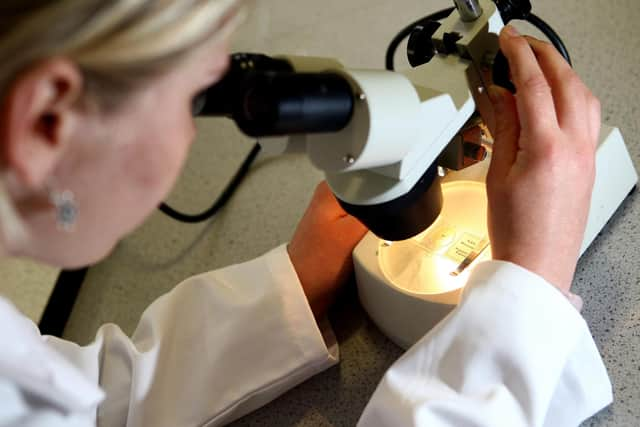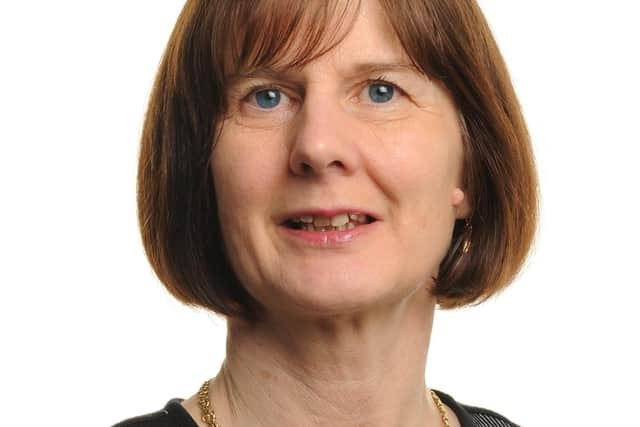Shockwave therapy could be used to treat some cancers, Scottish researchers find
Scientists at Aberdeen University and NHS Grampian’s Department of Vascular Surgery have uncovered more detail than ever before about the effects of this therapy, which has so far been used as a last resort to treat wounds that do not heal with conventional treatments.
High intensity extracorporeal shock wave therapy (ESWT) has been used to treat urinary stones for over 30 years.
Advertisement
Hide AdAdvertisement
Hide AdBut recent studies also show that low intensity waves could be used to treat several other conditions, including soft tissue wounds.


The new findings, published in the International Journal of Molecular Sciences, mean that shockwave therapy might be suitable to assist the treatment of certain types of cancer.
It was previously thought that shockwaves were effective by stimulating the production of more blood vessels to drive the healing process.
Researchers have now found the treatment also kick-starts the properties of important white blood cells, so they develop functions that make wounds heal such as clearing away debris and infection.


The team discovered how shockwave therapy changes the function of white blood cells in wounds that had been ongoing and non-healing for over three months.
They saw that this change in white blood cell properties correlated with an improvement in healing, but if there was not a change in white blood cells, wounds did not heal.
The findings suggest other disorders where white blood cells are dysregulated, such as certain cancers or autoimmune and inflammatory conditions, could also benefit from shockwave therapy.
So far the therapy has only been effective for some patients, and this new research may help explain why this is, and help to ensure it is only used with patients who could benefit.
Advertisement
Hide AdAdvertisement
Hide AdLead researcher Heather Wilson, Professor of Immunology at Aberdeen University, said: “This new study shows the benefit of shockwave therapy could be wider than previously thought, though conversely, it may also explain why the therapy is not effective on all patients.
“More research is required of course, but the results of studying white blood cells in the laboratory while they are exposed to shockwaves suggests there may be wider uses for the therapy, and it also allows us to be more targeted in those who receive it.”
A message from the Editor:
Thank you for reading this article. We're more reliant on your support than ever as the shift in consumer habits brought about by coronavirus impacts our advertisers.
If you haven't already, please consider supporting our trusted, fact-checked journalism by taking out a digital subscription.
Comments
Want to join the conversation? Please or to comment on this article.
